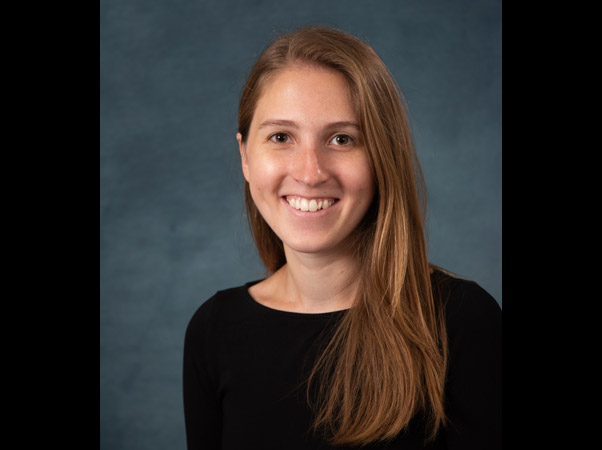Meet Morgan Ashcraft, graduate student in Pharmaceutical & Biomedical Sciences
Since joining May Xiong’s lab in January 2018, PBS graduate student Morgan Ashcraft has shown a deep commitment to research and community.
Xiong Lab focuses on two major health problems, improving iron chelation therapy and overcoming antibiotic resistance. Chelation therapy helps reduce iron overload in the body, a condition that can cause organ injury and death. Antibiotic resistance has been identified by the World Health Organization as “one of the biggest threats to global health, food security and development” facing the world today. In this context, Morgan describes her own research interests as “biomaterial-based systems in the area of iron chelation therapy and overcoming antibiotic drug resistance in Gram-negative bacteria.”
She has won a number of awards since coming to UGA. Last April, Morgan was awarded the International Society of Pharmaceutical Engineers Women in Pharma Scholarship. Then in April 2019, she was awarded a highly competitive NSF Graduate Research fellowship. A month later, in May 2019, Morgan received the Junior Student Award at PBS Research Day.
Morgan has worked with local underserved elementary students in UGA’s Fostering Our Community’s Understanding of Science (FOCUS) Project and was elected Chair of the Pharmaceutical & Biomedical Sciences Organization at UGA, a position which calls for her to “lead the PBSO executive board and support the goals of PBSO, including promoting professional development and encouraging student involvement within the local community,” according to the Xiong Lab website at xionglab.uga.edu.
We asked Morgan to tell us more about her work with Dr. Xiong in the lab and life at UGA.
Where did you earn your undergraduate degree, and what brought you to UGA and Athens?
As far as background information goes, I’m from Erie, PA originally, and I got my BS in Chemistry at Cleveland State University in 2017. I was extensively involved in research there, which positively influenced my decision to go to graduate school. I was interested in studying drug delivery systems/nanomedicine, which led me to Dr. May Xiong’s lab here at UGA.
May and I really connected during my interview process. Our research interests align, and she has been incredibly encouraging through my first years of establishing myself professionally with experiences, awards, and most recently a fellowship. It’s been a great fit.”
What are you currently researching?
I’m currently developing and investigating polymer-siderophore:gallium constructs as antibiotic potentiators to address the need for new antimicrobial therapies for antibiotic resistant Pseudomonas aeruginosa. I also have a side project involving the development of an improved delivery system for desferrioxamine, an iron chelator.
How would you describe these projects to a nonscientist?
I am making compounds to administer with antibiotics to make them more effective, addressing the need for more antimicrobial therapies in light of antibiotic resistance. I am also trying to create a system to improve the administration of the iron chelator, desferrioxamine, which is currently administered as a slow infusion and is extremely inconvenient to patients.
What does a typical day in the lab involve?
A lot of synthesis! I do nanoparticle synthesis, small molecule synthesis, and I’m about to move into polymer synthesis. There’s also quite a bit of characterization, in vitro analysis, and distracting my friends from their work.
How do you hope your work will impact the future?
I really hope to move our research field closer to producing more and better antibiotic therapies. I don’t think antibiotic resistance gets as much press as it deserves. It’s a very serious issue that needs to be addressed (hopefully by our research!).
Why is it important to get the rest of the world interested in this kind of research and science in general?
Developing new antibiotic therapies is very crucial at the moment. And it’s not easy! The general public will never know about the detailed systems we’re trying to develop (and that’s okay), but it’s really important for people to understand that there’s an urgent need for them and that they can potentially help the situation through proper use of antibiotics, limiting the emergence of antibiotic resistant pathogens. Finish your antibiotic regimens and do not take antibiotics for viral infections. I think there’s . . . a lack of understanding about how incredibly important this is. That needs to change.
I believe that we as a scientific community have an obligation to communicate our work in a way that is accessible to the general population in order to inspire interest, educate our communities, and increase scientific literacy. I think it’ll help avoid exacerbating issues such as emergence of antibiotic resistant pathogens, women’s health controversies, and climate change (just to name a few), and will generally make the world a better place.
What’s your favorite thing about Athens?
The weather! I never want to see snow again.


